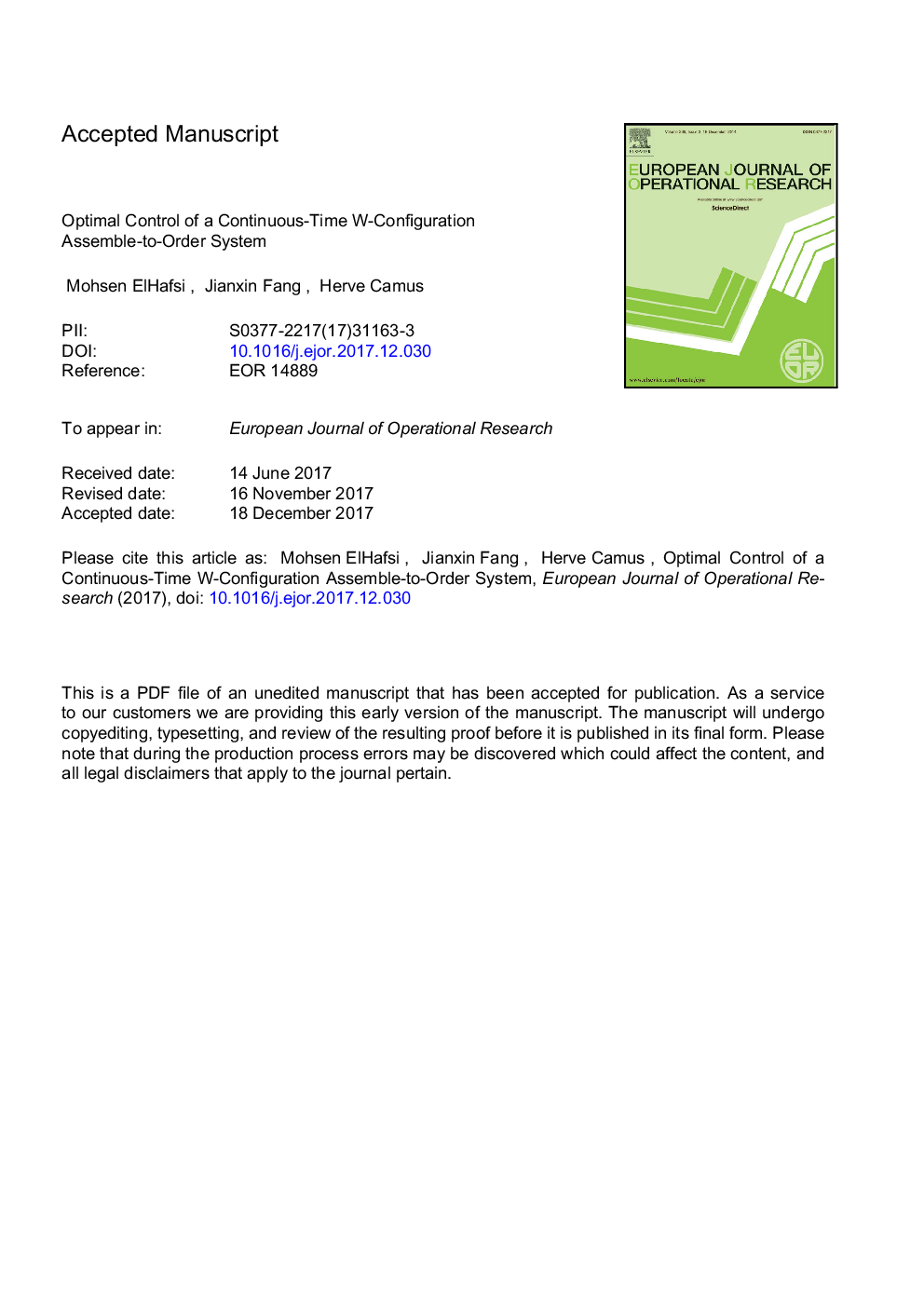| Article ID | Journal | Published Year | Pages | File Type |
|---|---|---|---|---|
| 6894954 | European Journal of Operational Research | 2018 | 37 Pages |
Abstract
We analyze a W-configuration assemble-to-order system with random lead times, random arrival of demand, and lost sales, in continuous time. Specifically, we assume exponentially distributed production and demand inter-arrival times. We formulate the problem as an infinite-horizon Markov decision process. We deviate from the standard approach by first characterizing a region (the recurrent region) of the state space where all properties of the cost function hold. We then characterize the optimal policy within this region. In particular, we show that within the recurrent region components are always produced. We also characterize the optimal component allocation policy which specifies whether an arriving product demand should be fulfilled. Our analysis reveals that the optimal allocation policy is counter-intuitive. For instance, even when one product dominates the other, in terms of lost sale cost and lost sale cost rate (i.e., demand rate times the lost sale cost), its demand may not have absolute priority over the other product's demand. We also show that the structure of the optimal policy remains the same for systems with batch production, Erlang distributed production times, and non-unitary product demand. Finally, we propose efficient heuristics that can be either used as an approximation to the optimal policy or can be used as a starting policy for the common algorithms that are used to obtain the optimal policy in an effort to reduce their computational time.
Related Topics
Physical Sciences and Engineering
Computer Science
Computer Science (General)
Authors
Mohsen ElHafsi, Jianxin Fang, Herve Camus,
